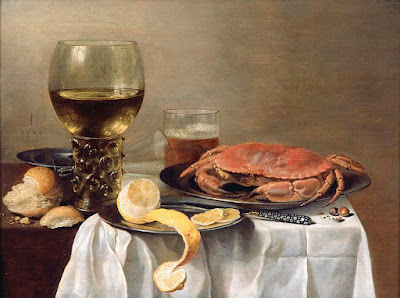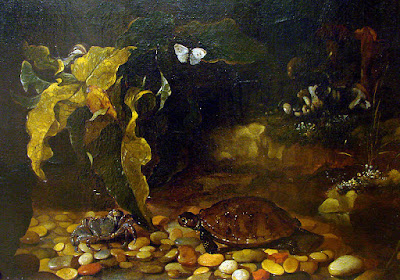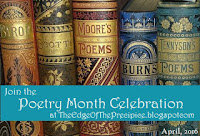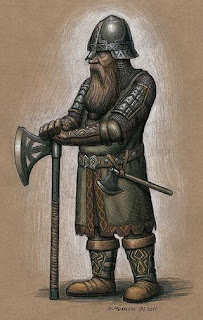For my second poem during National Poetry Month, I read C.S. Lewis’ Narnian Suite.
Narnian Suite
1
March for Strings, Kettledrums, and Sixty-three Dwarfs
With plucking pizzicato and the prattle of the kettledrum
We’re trotting into battle mid a clatter of accoutrement;
Our beards are big as periwigs and trickle with opopanax,
And trinketry and treasure twinkle out on every part of us –
(Scrape! Tap! The fiddle and the kettledrum).
The chuckle-headed humans think we’re only petty puppetry
And all our battle-tackle nothing more than pretty bric-a–brac;
But a little shrub has prickles, and they’ll soon be in a pickle if
A scud of dwarfish archery has crippled all their cavalry –
(Whizz! Twang! The quarrel and the javelin).
And when the tussle thickens we can writhe and wriggle under it;
Then dagger-point’ll tickle ‘em, and grab and grip’ll grapple ‘em,
And trap and trick’ll trouble ‘em and tackle ‘em and topple ‘em
Till they’re huddled, all be-diddled, in the middle of our caperings –
(Dodge! Jump! The wriggle and the summersault).
When we’ve scattered ‘em and peppered ‘em with pebbles from our catapults
We’ll turn again in triumph and by crannies and by crevices
Go back to where the capitol and cradle of our people is,
Our forges and our furnaces, the caverns of the earth –
(Gold! Fire! The anvil and the smithying).
2
March for Drum, Trumpet, and Twenty-one Giants
With strumping stride in pomp and pride
We come to thump and floor ye;
We’ll bump your lumpish heads to-day
And tramp your ramparts into clay,
And as we stamp and romp and play
Our trump’ll blow before us –
(crescendo) Oh tramp it, tramp it, tramp it, trumpet, trumpet blow before us!
We’ll grind and break and bind and take
And plunder ye and pound ye!
With trundled rocks and bludgeon blow,
You dunderheads, we’ll dint ye so
You’ll blunder and run blind, as though
By thunder stunned, around us –
By thunder, thunder, thunder stunned around us!
Ho! Tremble town and tumble down
And crumble shield and sabre!
Your kings will mumble and look pale,
Your horses stumble or turn tail,
Your skimble-scamble counsels fail,
So rumble drum belaboured —
(Diminuendo) Oh rumble, rumble, rumble, rumble, rumble drum belaboured!
C.S. Lewis
Poems (1964)
 |
The Giant Antaeus (1868)
Gustave Doré
source Wikiart |
There is not much information on this poem to quench our curiosity as to how it ties to Narnia. Tirian in
The Last Battle sings a short “Narnian marching song”, very much like it:
“Ho, rumble, rumble, rumble, rumble
Rumble drum belaboured.”
The Last Battle was finished in the spring of 1953 but not published until 1956 and Narnian Suite was written in 1953. Perhaps Lewis simply attempted to take the original marching song and expand it. In any case, it’s all speculation at this point; I may come up with some reference to it as I read through Lewis’ letters (yes, three huge volumes with a fourth soon to be published).
Does anyone think that this poem sounds very much like Tolkien’s poems in The Lord of the Rings? I do, but I am reading The Lord of the Rings presently, so perhaps I have that tone lingering in my head.













